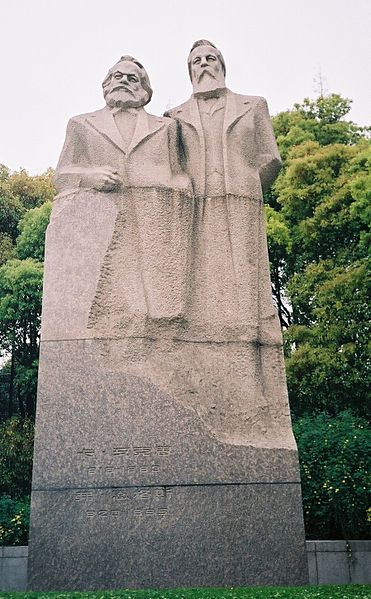The Three Represents, officially the Theory of Three Represents, is a sociopolitical theory that defines the role of the Chinese Communist Party (CCP) in Chinese society. It was first introduced by Jiang Zemin—then the General Secretary of the CCP—on 25 February 2000, while he was an inspection tour in Gaozhou, Guangdong. It was ratified by the party at the 16th Party Congress in 2002.
A slogan in Futu, Hubei, which reads: "Practice the Thought of Three Represents, advance the reform on rural tax system", with the word "reform" (改革) blocked by a billboard.
The Chinese Communist Party (CCP), officially the Communist Party of China (CPC), is the founding and sole ruling party of the People's Republic of China (PRC). Under the leadership of Mao Zedong, the CCP emerged victorious in the Chinese Civil War against the Kuomintang. In 1949, Mao proclaimed the establishment of the People's Republic of China. Since then, the CCP has governed China and has had sole control over the People's Liberation Army (PLA). Successive leaders of the CCP have added their own theories to the party's constitution, which outlines the party's ideology, collectively referred to as socialism with Chinese characteristics. As of 2023, the CCP has more than 98 million members, making it the second largest political party by membership in the world after India's Bharatiya Janata Party.
Site of the first CCP Congress, in the former Shanghai French Concession
Chinese communists celebrate Joseph Stalin's birthday, 1949.
A temporary monument displayed in Changsha, Hunan Province, to celebrate the 100th anniversary of the CCP's founding
A monument dedicated to Karl Marx (left) and Friedrich Engels (right) in Shanghai





